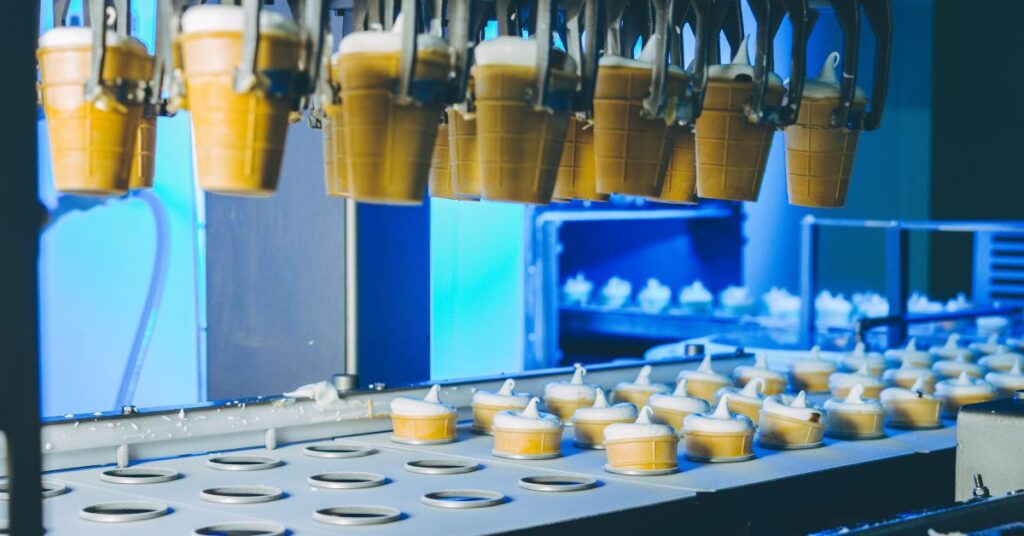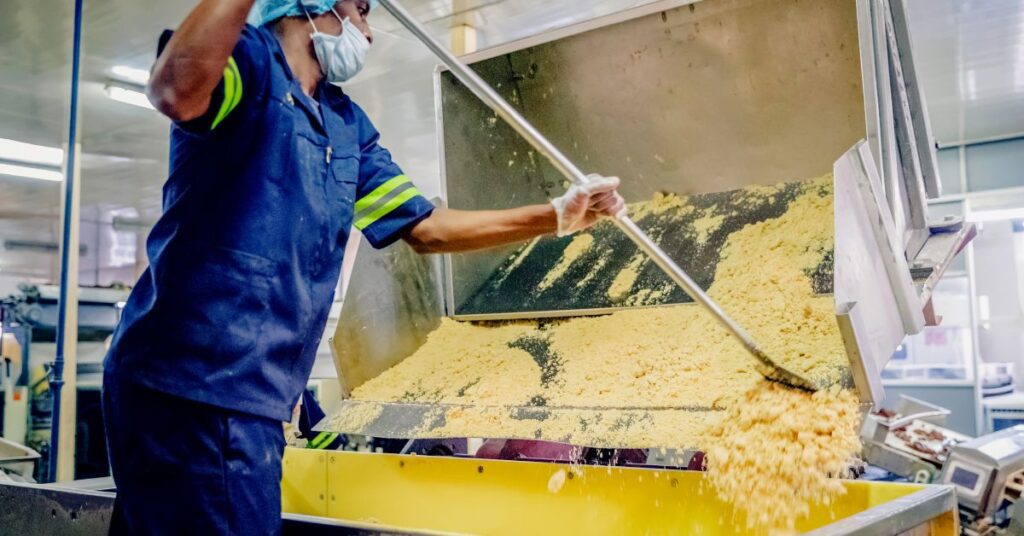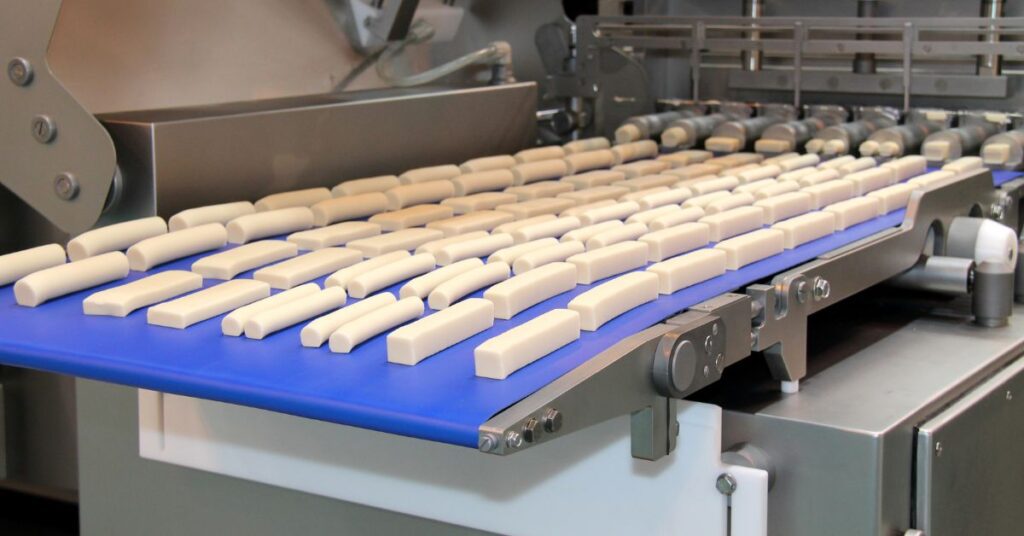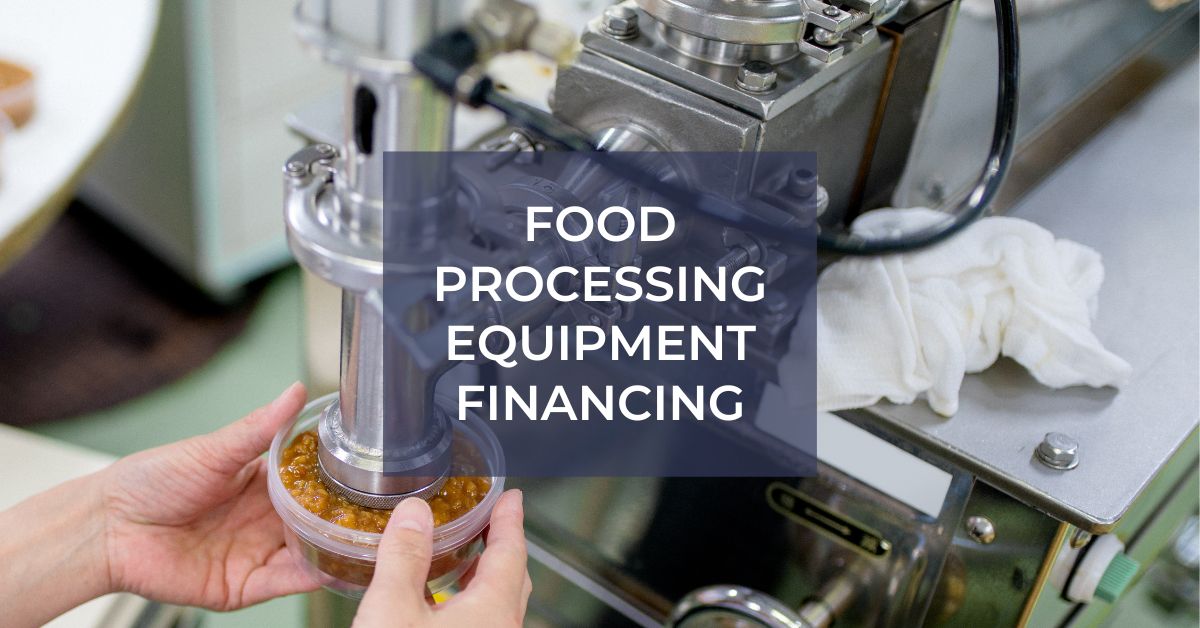Food processing equipment is critical for businesses in the food and beverage industry, where they are used for baking, frying, mixing, and packaging. With food processing equipment financing from BNC Finance, you can equip your business with the necessary machinery to maintain operations and drive growth. This guide will detail how to obtain food processing equipment financing with BNC Finance, the types of food processing equipment you can finance, and alternative financing options.
Table of contents
Types of Food Processing Equipment Financing

Types of Food Processing Equipment Financing
Equipment Loans for Food Processing
- Description: These are loans specifically used to purchase food processing equipment. The equipment, such as industrial mixers, slicers, or packaging machines, often serves as collateral.
- Advantages: Direct ownership of the food processing equipment from the start; potential for tax benefits through equipment depreciation.
- Considerations: Usually requires a down payment; the terms and interest rates are influenced by the business’s creditworthiness and the equipment’s value.
Food Processing Equipment Leasing
- Description: This option allows businesses to lease food processing equipment for a set period. This could include anything from refrigeration units to conveyor belts. The lease might offer a purchase option at the end of the term.
- Advantages: Reduced initial expenditure as compared to buying; lease payments might be deductible as business expenses; option to upgrade to newer equipment after the lease ends.
- Considerations: Total leasing costs over time might exceed the cost of purchasing; the business does not own the equipment during the leasing period.
Equipment Finance Agreements (EFAs) for Food Processing Equipment
- Description: EFAs provide a flexible financing option combining elements of both loans and leases. They are contractual agreements to pay for food processing equipment over time, typically with the intent to own the equipment at the end of the term.
- Advantages: Flexibility in structuring payment terms and conditions; potential for tax advantages; applicable for a diverse range of food processing equipment.
- Considerations: This can be more complex than traditional loans or leases; terms and rates may vary widely, depending on the agreement and the business’s credit profile.
For businesses in the food processing industry, choosing the right financing option depends on several factors, including the type of equipment needed, the financial health of the business, and its long-term operational strategy. Equipment Loans are ideal for businesses aiming for long-term use and ownership of the equipment. Leasing is more suitable for those seeking lower upfront costs with flexibility, and EFAs offer a balanced approach with customizable payment terms. Businesses should consult with financial experts or equipment financing specialists to ensure they select the best option for their specific needs in the food processing sector.
Apply for Food Processing Equipment Financing

Apply for Food Processing Equipment Financing
Types of Food Processing Equipment That Can Be Financed

Types of Food Processing Equipment That Can Be Financed
BNC Finance provides versatile financing solutions for an extensive range of food processing equipment to support a diverse set of business requirements:
Preparation Equipment
- Mixers and Blenders: These are crucial for combining ingredients to create consistent mixtures. Types include ribbon blenders for dry powders, planetary mixers for doughs, and high-shear emulsions.
- Slicers and Dicers: Essential for precision cutting, these machines vary from simple handheld slicers for fruits and vegetables to automated dicers for large-scale meat processing.
- Grinders and Mincers: Used for processing large cuts of meat into ground forms, essential in producing sausages, hamburgers, and other meat products.
Processing Equipment
- Heat Exchangers: These play a pivotal role in thermal processing and are used for pasteurizing milk, sterilizing fruit juices, and other heat treatments.
- Homogenizers: Critical for dairy and beverage industries, they break down fat particles to improve consistency and shelf life.
- Fermentation Tanks: Stainless steel vessels designed for controlled fermentation processes, vital in cheese making, brewing, and yogurt production.
Cooking and Baking Equipment
- Ovens and Fryers: Industrial ovens can range from baking bread and pastries to roasting coffee beans. Deep fryers are used for large-scale frying of foods like french fries or chicken.
- Steamers and Boilers: Commercial steamers for vegetables and seafood maintain nutritional value and taste, while boilers are used for mass cooking.
Packaging Equipment
- Filling Machines: These machines handle the precise filling of liquids into containers, which is crucial for beverages, sauces, and dairy products.
- Sealing Machines: Ensure airtight and hygienic closure of packages, which is vital for shelf life and food safety.
- Labeling Machines: Automatically apply labels with product information, which is essential for branding and regulatory compliance.
Quality Control Equipment
- Metal Detectors and X-Ray Machines: Detect physical contaminants in food products, ensuring consumer safety.
- Spectrometers and Chromatographs: Analyze chemical composition for quality control, ensuring consistency and adherence to standards.
Refrigeration and Freezing Equipment
- Industrial Refrigerators and Freezers: Preserve perishable goods crucial for meat, dairy, and fresh produce.
- Blast Chillers: Rapidly cool food products to safe temperatures, preventing bacterial growth.
Material Handling and Storage Equipment
- Conveyors and Elevators: Efficiently transport materials through different processing stages, reducing manual labor.
- Storage Tanks and Silos: Store large quantities of liquids like milk or oil and dry goods like grains under controlled conditions.
Cleaning and Sanitizing Equipment
- Washers and Sterilizers: Ensure equipment and processing areas meet health and safety standards, which are critical for maintaining food safety.
Waste Management Equipment
- Compactors and Waste Disposal Systems: Effectively manage by-products and waste, enhancing sustainability and regulatory compliance.
Each type of equipment plays a specific and often critical role in the food processing chain, impacting everything from product quality to safety and efficiency. Financing these pieces of equipment allows food processing businesses to maintain a competitive edge, adhere to regulatory standards, and meet the demands of a growing consumer market without the burden of significant upfront capital expenditure.
Alternatives to Food Processing Equipment Financing
While food processing equipment financing is a popular choice for many businesses, here are some alternatives
- Line of Credit: A business line of credit provides flexible access to funds up to a set limit. You only pay interest on your funds, making it a cost-effective choice for ongoing operational expenses, including equipment maintenance and upgrades.
- Working Capital Term Loans: These loans offer a lump sum you pay back over a set term. They are typically used for larger, one-time expenses. A working capital term loan could be ideal if you plan a significant investment in advanced food processing equipment or expand your operations.
In conclusion, food processing equipment financing with BNC Finance provides numerous opportunities for businesses in the food and beverage industry. By understanding the financing process, knowing the types of food processing equipment you can finance, and considering the alternatives, you can make an informed decision for your business’s financial needs.
Frequently Asked Questions
The main types are equipment loans, leases, and Equipment Finance Agreements (EFAs). Each has different terms and benefits, suited to various business needs.
Qualification depends on factors like your business credit score, financial history, the age of your business, and cash flow. Lenders will assess these to determine your eligibility. You can Apply Here
Leasing can offer lower upfront costs, flexibility to upgrade equipment, and potential tax benefits. It’s ideal for equipment that quickly becomes outdated.
Yes, financing is available for used food processing equipment, which can be more cost-effective than new equipment.
This depends on your business’s financial situation, how long you need the equipment, and whether you want to own it. Leasing offers flexibility and lower upfront costs, while buying can be more cost-effective in the long term.
Other types of Equipment Financing Programs
- Equipment Leasing for Bad Credit
- Snow Removal Equipment Financing
- Golf Course Equipment Financing
- Refrigeration and Vending Equipment Financing
Financing Applications
Equipment Financing Related Articles
- Benefits of Financing your Business Equipment
- Tailoring Equipment Financing for Optimal Flexibility: Unique Terms and Structures for Your Business
- Harness State-of-the-Art Technology with Equipment Financing: A Game Changer for Businesses
- Equipment Financing and Leasing: Your Business Shield Against Inflation
- Jumpstarting Productivity: Accelerate Your Business with Equipment Financing
- 5 Reasons you should replace equipment before it breaks
For Equipment Vendors, Manufacturers and Dealers
- Offer Financing Payments as a B2B Sales Strategy
- Why Equipment Sales Professionals Should Offer Equipment Leasing
- Business Finance Referral Program
- How to Increase Business Revenue through Strategic Partnerships
- Close More Sales – Offer as Low as Monthly Payment Calculator
- Offer Financing
- Offer Financing Vendor Questionnaire
